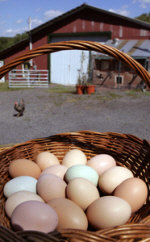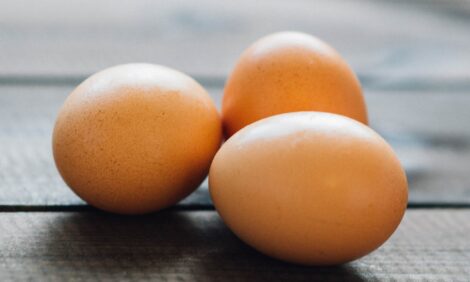



British Egg Week Hoping To End Market Gloom
UK - UK egg producers are hoping that this year’s British Egg Week (8-14 October), which will celebrate 50 years of British Lion eggs, will lift the gloom surrounding the industry’s current battle to cope with rising costs.
Despite the lack of profitability facing producers, 2007 has seen consumers returning to eggs in increasing numbers and the industry is hoping that its biggest-ever British Egg Week campaign – which will include national TV advertising support for the first time - will prompt further market growth, back towards the highest-ever levels seen in the 1950s.
Retail egg sales are up by 3% in volume this year. The British Egg Industry Council (BEIC) attributes the rise to the marketing of eggs as a healthy, modern food and increasing scientific evidence of the health benefits of eggs, including their ‘satiety effect’.
The TV advertising campaign will appear on GMTV and selected satellite channels and will highlight the benefits of eggs for dieters, featuring a healthy Pizza Omelette recipe which prompted a deluge of hits on the British Lion eggs website when it was launched earlier this year.
British Egg Week 2007 and the celebration of the golden anniversary of British Lion eggs will be launched at the House of Commons on Monday 8 October by the UK’s original ‘celebrity chef’ Marguerite Patten OBE. Marguerite will then be joined by the world’s fastest omelette-maker, American chef Howard Helmer, in a tour of UK schools to recreate her famous cooking demonstrations of the 1950s.
Other support for British Egg Week will include TV appearances by both celebrity egg chefs, recipe features in top consumer magazines, and in-store support including on-pack and point-of-sale promotions in major retailers including Asda, Morrisons and Co-op. British Lion eggs will also feature on menus throughout the House of Commons during the Week.
The original Lion, accompanied by the ‘Go to work on an egg’ TV advertising, was introduced in 1957, to denote eggs marketed by the British Egg Marketing Board. It was reintroduced by the BEIC in 1998 to signify eggs that were not only British but also produced to the highest standards of food safety.











